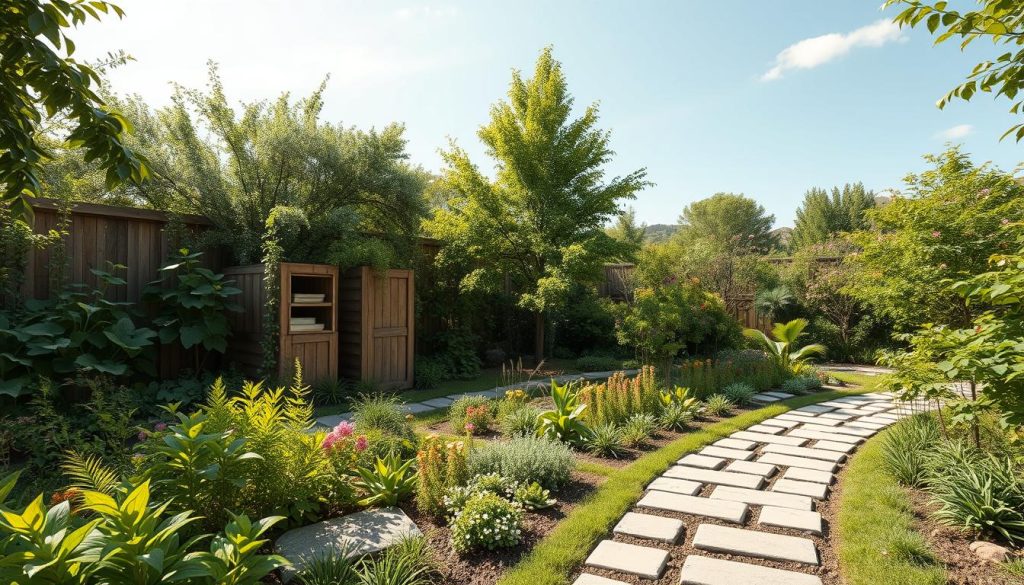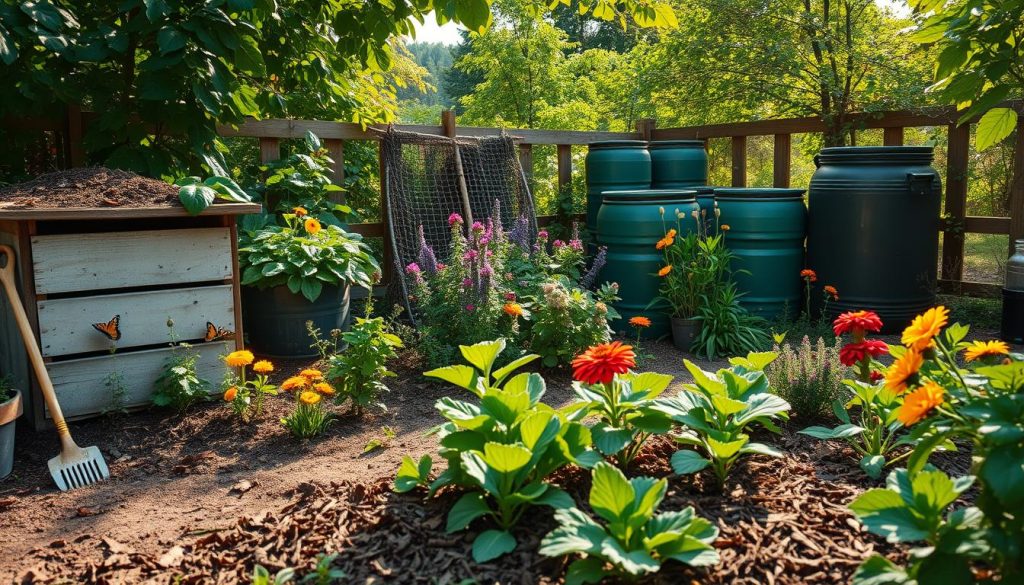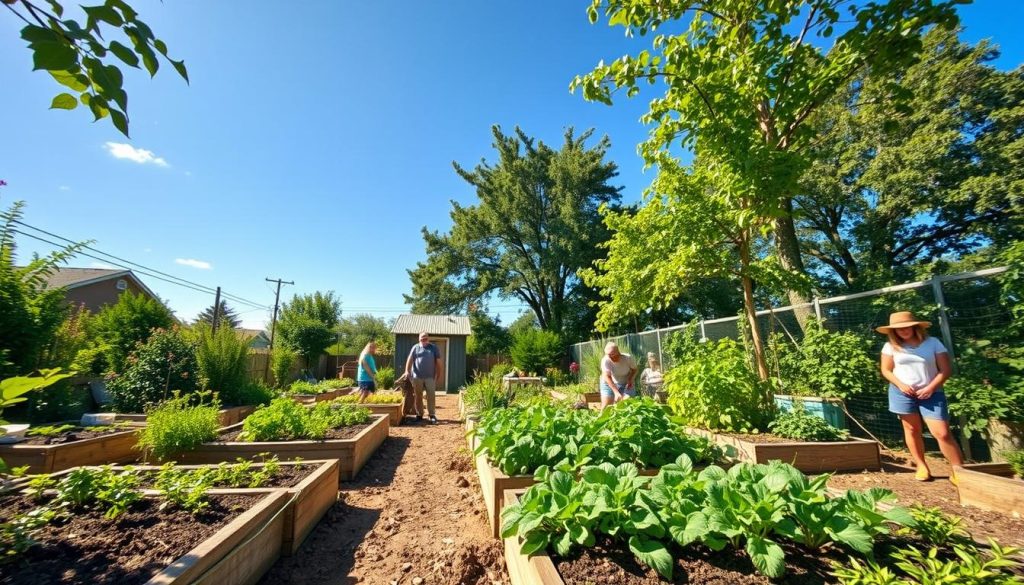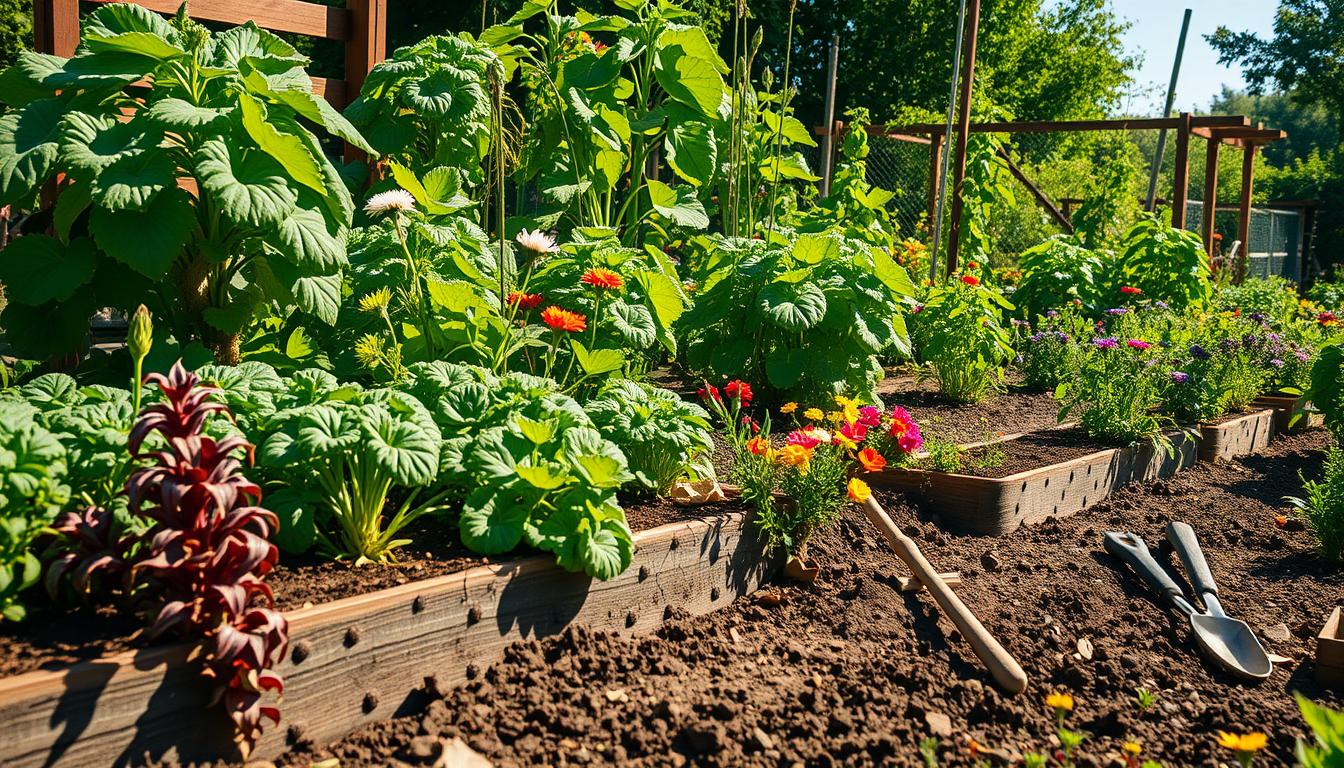I’m excited to share my journey with organic and zero-waste planting. It has turned my garden into a thriving oasis. By using sustainable gardening, I’ve cut down on waste and made a healthy ecosystem.
Organic and zero-waste planting means working with nature. We use eco-friendly methods to reduce waste and support biodiversity.
My journey shows that organic and zero-waste planting can greatly help the environment. By composting and using recycled materials, we avoid harmful chemicals. This makes our gardens better for the planet.
In this article, I’ll share my tips for a lush, sustainable garden. These methods are great for anyone wanting to help the planet.
Understanding Organic and Zero-Waste Principles
To make a garden sustainable, it’s key to grasp organic and zero-waste gardening. Using natural methods, like attracting beneficial insects, cuts down on synthetic chemicals. This helps the environment and makes plants healthier.
Environmentally friendly gardening means less waste. This is done by composting, reusing, and avoiding plastics. Mixing organic and zero-waste ideas makes your garden green and lasting. The main advantages are:
- Less pollution
- More natural resource saving
- Better biodiversity
Exploring organic and zero-waste gardening further, I’ll show you how to use these methods in your garden. By choosing natural and eco-friendly practices, you can have a garden that’s good for you and the planet.
Preparing Your Garden for Organic Planting
To make your garden thrive, you need to prepare it well. This means taking a few important steps. These steps will help your plants grow strong. They also help your garden be good for the environment and your plants.
Choosing the right spot for your garden is key. It should get enough sunlight and have good drainage. This keeps the soil from getting too wet and helps your plants get the nutrients they need.
Soil Health: Testing and Amending
Soil health is very important in organic gardening. Testing your soil shows its pH level and nutrient content. Then, you can add organic matter like compost to make the soil better.
Selecting Organic Seeds and Plants
Choosing organic seeds and plants is also crucial. Look for organic seeds and plants without harmful chemicals. This supports healthy plant growth and sustainable gardening.

By following these steps and using organic gardening tips, you can have a beautiful garden. It will be good for you and the environment. Always choose organic options to reduce your impact on the planet.
Implementing Zero-Waste Techniques in Gardening
To lessen your environmental impact, try zero-waste gardening. This method supports green gardening and earth-friendly planting. It helps your garden grow healthy and strong.
Start by composting kitchen scraps and yard waste. This cuts down on landfill waste and makes your soil better. You can also use recycled stuff for garden projects. This reduces waste and boosts your creativity.
Reducing Plastic Use in Your Garden
To cut down on plastic, use biodegradable or reusable items. Here are some ideas:
- Choose bamboo or wooden tools over plastic ones
- Go for biodegradable pots and planters
- Make a compost bin from recycled materials
By using these zero-waste methods, you’ll make your garden more eco-friendly. Every little change helps our planet. So, making a few tweaks to your gardening can make a big difference.

Sustainable Watering and Maintenance Practices
As I care for my garden, I’ve learned the value of sustainable watering and maintenance. Using eco-friendly planting methods helps reduce my environmental impact. Rainwater harvesting is a key practice that cuts down my water bill and saves water.
I’ve also started mulching to keep the soil moist. This simple method cuts down on soil evaporation, helping plants grow well and needing less water. Plus, I’ve looked into natural pest control, like using beneficial insects, to avoid chemical pesticides and keep the ecosystem balanced.

- Collecting and storing rainwater for irrigation purposes
- Using organic mulch to retain moisture and suppress weeds
- Introducing beneficial insects to control pests naturally
By adding these eco-friendly practices to my gardening, I’ve made a garden that’s good for the planet and brings me joy. It’s a fulfilling experience to see my garden thrive.
Harvesting and Sharing Your Bounty
As your garden grows, it’s time to pick your fresh produce. Using green harvesting methods helps your plants grow strong and cuts down on waste. You can save extra fruits and veggies by canning or freezing them. This way, your family can enjoy healthy, homegrown food all year.
Best Practices for Sustainable Harvesting
I always pick my crops when they’re at their best. I use the right tools to avoid hurting the plants. This keeps my harvest quality high and helps my plants keep growing.
Preserving Surplus Produce Naturally
When I have too much fresh food, I use natural ways to keep it. I can, pickle, or freeze it. These methods let me enjoy my garden’s flavors even when it’s not in season. It also helps reduce waste and keeps my family healthy.
Building a Community Through Gardening
Connecting with others who garden like me has been incredibly rewarding. We share tips, tools, and even our harvest. Together, we’ve created a community dedicated to living green and caring for our planet.

